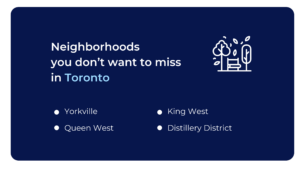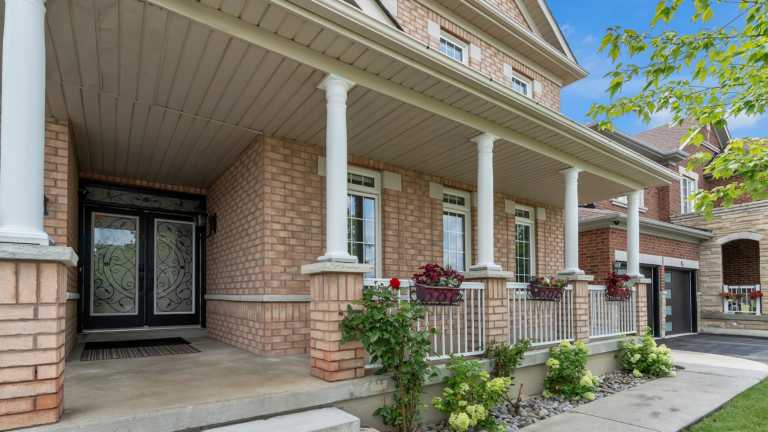When it comes to whether to buy or sell your house first, there’s no one-size-fits-all answer. While we can’t tell you which is better, we can walk you through the key factors to consider so you can make the best decision for your circumstances.
What Are You Looking For in Your Next Home?
Before selling, it is essential to consider the type of home you are looking for. Are you interested in a house in a quiet suburb? Or a condo in the city center? Maybe a countryside home on the outskirts? The kind of property you want will influence your decision on whether to buy or sell first.
Here are a few common options to consider:
- Single-family homes: Ideal for families who need space and privacy. They are common in suburban areas where you’ll find larger lots and quieter neighborhoods.
- Condos: Perfect for individuals or couples who prefer an urban lifestyle with amenities and minimal maintenance.
- Townhouses: A middle ground between a condo and a detached home, often found in growing urban or suburban communities.
- Rural properties: If you’re looking for a home with more land, fresh air, and a break from the city, the countryside may be your best choice.
Once you have a clear idea of what you want, you can start exploring areas where these types of properties are available. The location will heavily influence the cost of your new home, so narrowing down your preferred neighborhoods is a key first step.
You may also want to consider factors like proximity to work, schools, public transit, and local amenities such as parks, shopping centers, and healthcare facilities. These aspects can significantly impact your daily life and overall satisfaction with your new home.
Where You Want to Live, Influences When You Should Buy or Sell
Choosing the right area and neighborhood is not just about pricing—it also determines the level of demand in the market. Some neighborhoods have high turnover rates, meaning homes sell quickly, while others may have lower demand, allowing you to take your time finding the perfect home. If the area you’re interested in is highly competitive, you may need to act fast when you find a property you like. On the other hand, if the neighborhood has a slower market, you might be able to negotiate a better deal or wait for a property that checks off more of your must-haves. Understanding these dynamics can help you decide whether to buy right away or take your time searching for the ideal place.
Additionally, studying market trends in different neighborhoods can help you anticipate price changes. Some areas are up-and-coming, with increasing property values, while others may be stagnating or even declining. If you’re considering a neighborhood with rising demand, buying sooner rather than later could save you money. However, if you notice that prices are holding steady or dropping, you might have the opportunity to wait and secure a better price. Working with a realtor who understands these trends can give you an advantage in making the most informed decision.

Analyze Your Financial Situation
The next step is understanding your financial situation and how it impacts your decision. Here are some questions to ask yourself:
- What is the maximum and minimum budget I am willing to invest?
- Are my resources self-funded, or will I apply for a loan?
- If I need a loan, what is my credit score, and will I qualify for favorable terms?
- Do I need the money from selling my current home to purchase the next one?
If the answer to the last question is yes, it may be best to sell first so you have liquidity for your next purchase. If you have enough savings or financing options, you may feel comfortable buying first without relying on the sale proceeds.
In Canada, mortgage rules and interest rates can affect your ability to qualify for a loan, so it’s always a good idea to consult with a financial advisor or mortgage specialist before making a decision. Additionally, you should factor in potential costs such as:
- Closing costs: Legal fees, land transfer taxes, and administrative expenses.
- Moving costs: Hiring movers, purchasing packing materials, and other related expenses.
- Home inspection and appraisal fees: Essential for assessing the value and condition of your next home.
- Property taxes and insurance: Ongoing costs that will impact your budget.
To estimate how much you can get for your home, you can use Cityscape’s AI Valuator.
H3: AI Valuator: Get an Accurate Estimate
Cityscape’s AI Valuator is an advanced tool that helps you determine a real and competitive price for your home. Instead of making rough guesses, this tool uses data such as:
- Location & neighborhood trends
- Market conditions (current supply and demand)
- Property characteristics (size, number of rooms, age, and upgrades)
- Recent sales of similar homes
Having a clear idea of your home’s value before speaking with a realtor will help you feel more confident and make the most out of your discussions. This way, you can harness your time effectively and avoid unrealistic expectations when setting a selling price.
Many homeowners tend to overestimate the value of their property, leading to prolonged listing periods and potential price reductions. By using the AI Valuator, as an starting point you get an estimate that helps you to price your home with the guidance of a realtor.
Once you get an estimate of your home’s value, you can analyze if buying or selling first works best for you for example…
Scenario 1: Buying First Makes More Sense
Lisa and Mark have been living in their downtown Toronto condo for several years, but now that they have a growing family, they want to move into a larger detached home in the suburbs. They’ve saved a substantial down payment and have been pre-approved for a mortgage, meaning they don’t necessarily need the funds from their condo sale to purchase their new home. Because suburban homes in their desired area tend to sell quickly, they decide to buy first to secure a property that meets their needs before selling their condo. Since their downtown condo is in a high-demand area, they feel confident that they’ll be able to sell it quickly once they’ve moved. This approach allows them to move seamlessly into their new home without worrying about temporary housing.
Scenario 2: Selling First is the Safer Option
John and Sarah live in a large home in Mississauga, North York but are looking to downsize to a smaller townhouse. Their home is in a more expensive price bracket, meaning it could take several months to find the right buyer. On the other hand, the townhouses they’re considering tend to stay on the market for a while, giving them plenty of options. Since they don’t want the financial burden of carrying two mortgages, they choose to sell first to know exactly how much money they have before making an offer on their new home. By selling first, they eliminate the risk of being stuck with two properties or feeling rushed into a sale. They also have the flexibility to negotiate better terms for their townhouse purchase once they have secured the proceeds from their home sale.
Both scenarios highlight how personal circumstances, financial security, and market conditions play a crucial role in deciding whether to buy or sell first. Analyzing these factors carefully can help you make the right choice for your unique situation.
Reaching Out to a Realtor
Now that you have an idea of your desired home and finances, it’s time to consult an agent. A professional can provide valuable insights into:
- Whether your current home is in demand
- How long it may take to sell based on market conditions
- Whether you can buy first without financial strain
- What the best strategy is based on your needs
Realtors have experience in balancing the risks and benefits of buying or selling first, so they can help you choose the most convenient option for your unique situation.
Benefits of Having a Realtor by Your Side
Working with a realtor provides numerous advantages, including:
- Market Expertise: Realtors have in-depth knowledge of the market, including property values, trends, and demand in different neighborhoods.
- Negotiation Skills: They can negotiate on your behalf to get the best price whether you are buying or selling.
- Access to Listings: Realtors have access to exclusive property listings that may not be available to the public.
- Guidance Through Paperwork: The home-buying and selling process involves a lot of paperwork, and a realtor ensures that everything is handled correctly and efficiently.
- Legal and Regulatory Knowledge: They understand local regulations, ensuring compliance with all necessary laws and requirements.
- Saving Time and Effort: Instead of navigating the market alone, a realtor helps streamline the process, from home searches to closing deals.
- Support During Decision Making: A realtor provides honest and professional advice to help you make informed decisions that align with your financial and personal goals.
Having an experienced professional by your side ensures that the process is less stressful, more efficient, and ultimately more successful.
Seasonality: The Best Time to Buy or Sell
Another key factor to consider is market seasonality. The real estate market fluctuates throughout the year, which can impact your decision:
- Spring and Fall: Peak real estate seasons in Canada with more buyers and higher property demand, making it easier to sell at a good price.
- Winter and Summer: Slower seasons where selling may take longer, but it’s a great time to find deals on properties.
During peak seasons, competition among buyers is high, meaning you may face bidding wars if you choose to buy first. However, during slower seasons, sellers may be more willing to negotiate, allowing you to secure a better deal.
Working with a realtor can help you strategically time your move to maximize the benefits of buying or selling first.
You might also be interested in Best Months to Sell a Home: Maximize Your Profit with the Perfect Timing
Pros and Cons of Buying First
Buying a home before selling your current one can be a strategic move, but it also comes with potential risks. This decision depends on your situation, and your personal needs. Here are the key advantages and disadvantages of buying first.
| Pros | Cons |
| You have more time to find the perfect home without feeling rushed. | You may have to carry two mortgages if your current home doesn’t sell quickly. |
| You can move at your own pace, avoiding temporary housing. | Financial strain if you don’t have enough liquidity for both transactions. |
| You’re not under pressure to accept a lower offer on your current home. | Risk of overestimating your home’s value and being unable to sell it for the expected price. |
| If you find a great opportunity, you can act quickly without waiting to sell first. | Pressure to sell your home quickly, possibly resulting in accepting a lower price than desired. |
Pros and Cons of Selling First
On the other hand, selling your current home before buying a new one can provide more financial security and reduce risk. However, this approach also has its own set of challenges.
| Pros | Cons |
| You’ll know exactly how much money you have for your next purchase. | You may feel pressured to find a new home quickly, which could lead to settling for a less-than-ideal property. |
| You avoid the financial burden of paying two mortgages. | You may need temporary housing if you haven’t found a new home yet. |
| Less risk of being stuck with an unsold home while moving to a new one. | If the market shifts, you might face higher prices when buying later. |
| Greater negotiating power when making an offer on your next home, as you are not in a rush. | Added stress of moving twice if you have to rent or find temporary accommodations in between homes. |
Deciding whether to buy or sell first is a deeply personal decision that depends on your financial situation, market conditions, and personal preferences. While there’s no universal answer, understanding the pros and cons of each approach, and relying on expert guidance, can help you make an informed choice.
If you’re still unsure, consulting with a trusted realtor and using tools like the AI Valuator can provide you with the clarity and confidence you need to move forward.
You may also be interested in






